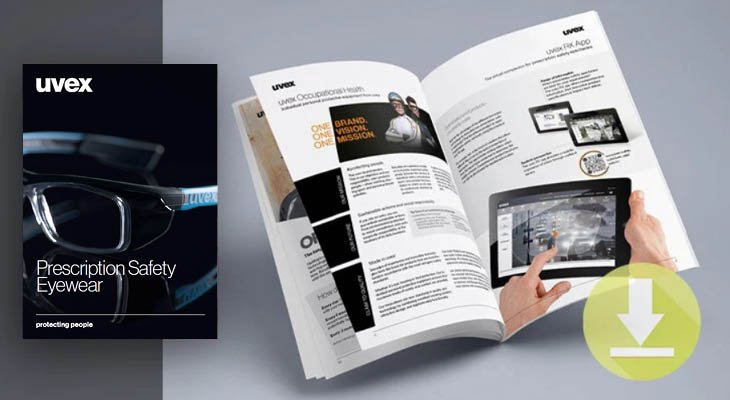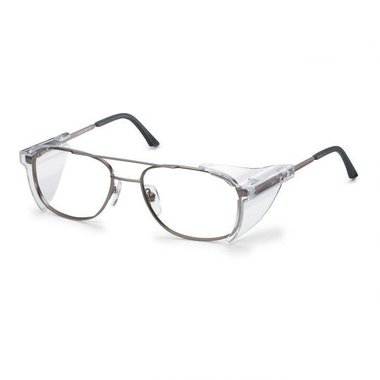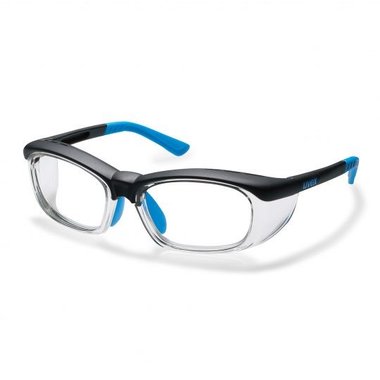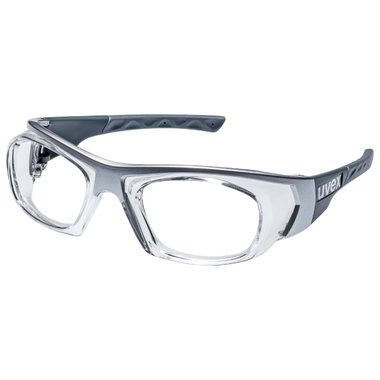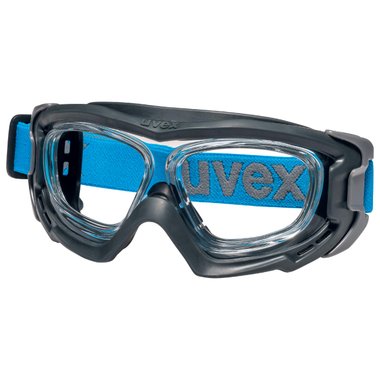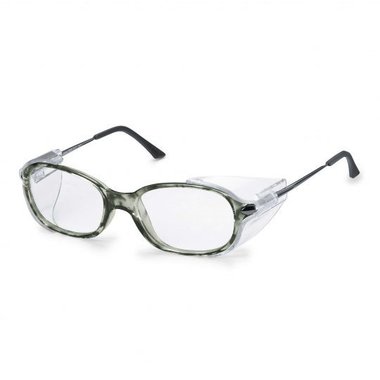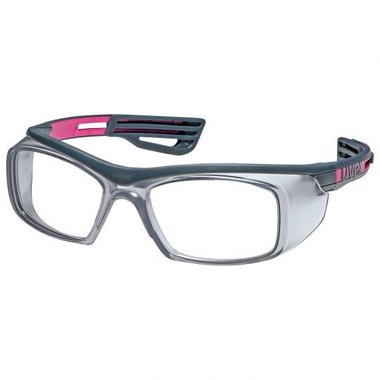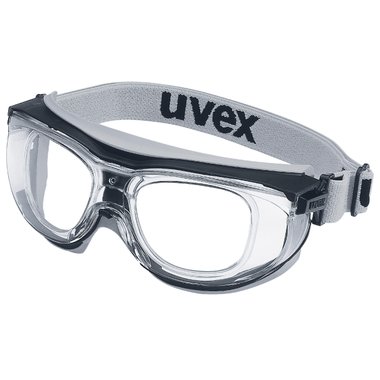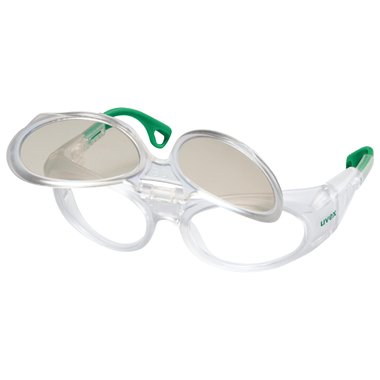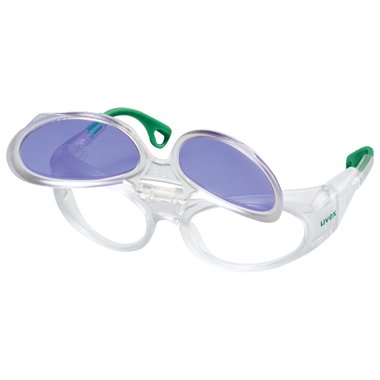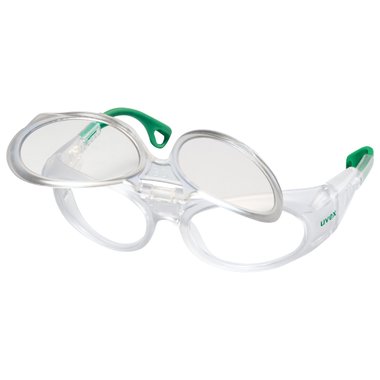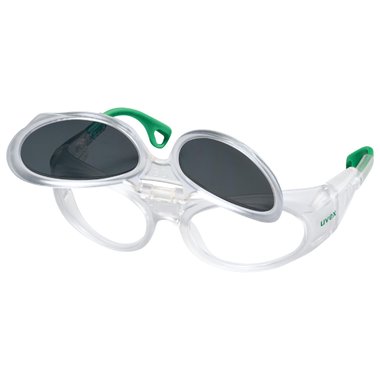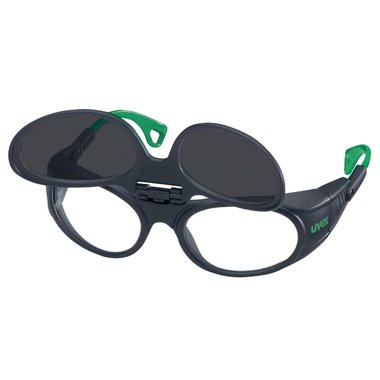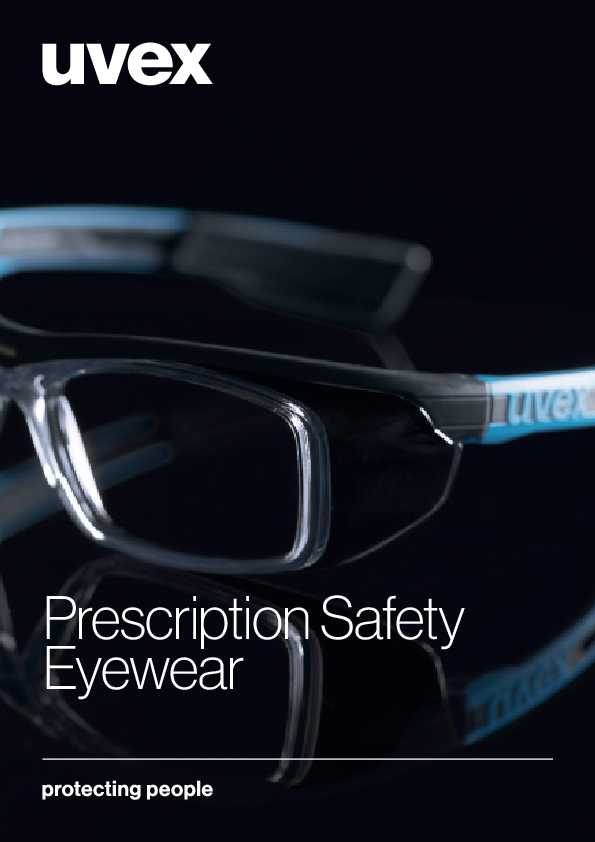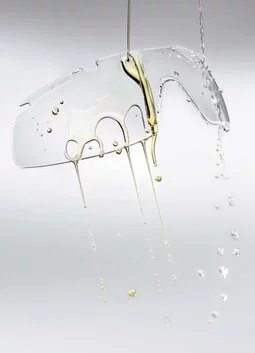
Prescription safety spectacles from uvex
uvex prescription safety spectacles are individually adapted to the wearer's vision while offering the best possible protection in the workplace.
The spectacles are certified and marked in accordance with EN 166, so they can be used in workplaces where safety spectacles are mandatory. As occupational safety spectacles, they not only protect the eyes (from UV radiation, flying particles, dust etc.), but are also a visual aid because the lenses have a dioptric effect.
uvex offers a wide range of high-quality lens materials, focus types and frames. This makes it easier to switch between personal spectacles and employer-provided safety spectacles, which increases wearer acceptance.
The comprehensive uvex quality system guarantees the best design from an optical and processing technology perspective. All materials used (lenses, frames, cases etc.) are free from harmful substances
and are regularly inspected.
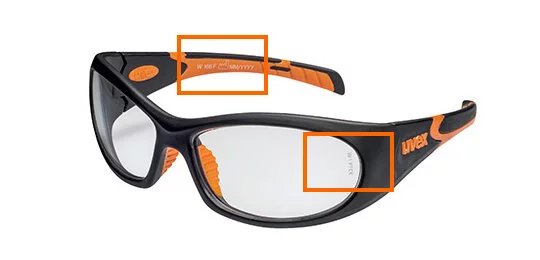
Marking of the frame in accordance with EN 166
- Frame and lenses are permanently marked.
- If the marking on the lens and frame are different, the lower mechanical strength applies to the entire eye protection device.
- According to the PPE regulation, uvex prescription safety spectacles must be marked with the factory symbol and production date: MM/YYYY
The wide uvex collection means you can find the right frame for your needs
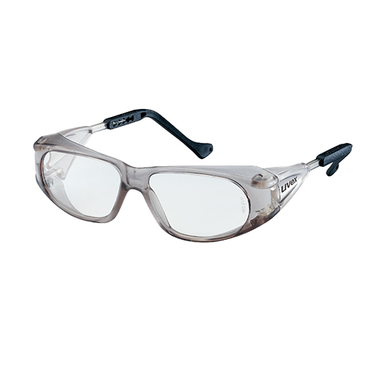
uvex RX bc 5502 prescription safety
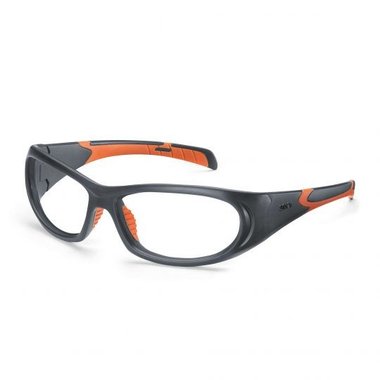
uvex RX sp 5510 prescription safety
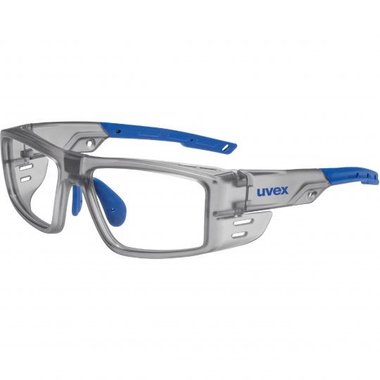
uvex RX cd 5522 prescription safety
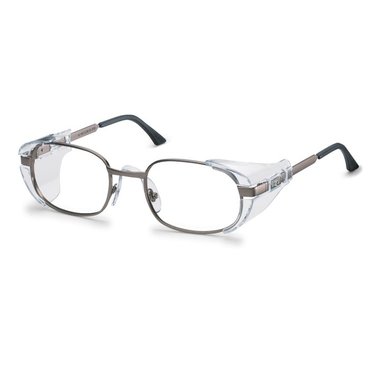
uvex RX bc 5106 prescription safety
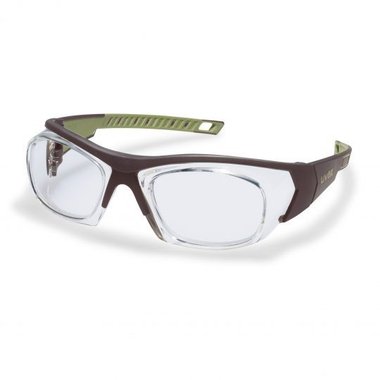
uvex RX cd 5518 prescription safety
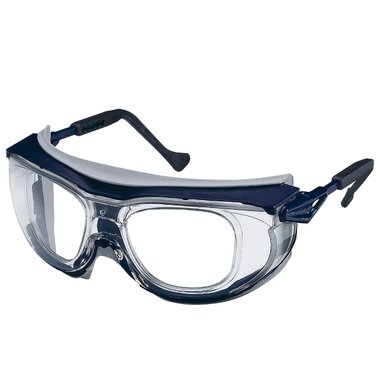
uvex RX cf 5500 prescription safety
Available on request
- Perfect solution for wearer of glasses working on places with risk of eye injuries
- No impairments and disturbing reflections
- High acceptance due to maximum wearing comfort and perfect vision
- Consumer spectacles do not offer enough protection due to less coverage and low mechanical impact resistance
Occupational Health and Safety Act, 1993
The Minister of Labour has under section 43 of the Occupational Health and Safety Act, 1993 (Act No. 85 of 1993), after consultation with the Advisory Council for Occupational Health and Safety, made the regulations in the Schedule:
- Right to appropriate eye protection (OSH Act)
- Hazard elimination Priority - Number One
- Personal Protective Equipment (PPE) - Last resort
- Consumer Protection Act (CPA) - Accountability
- Chemical (acids, bases, gases, vapours, mists/hazes, fumes)
- Mechanical (foreign bodies e.g. dust, splinters)
- Optical (UV- /IR-radiation, glare)
- Single vision
- Bifocal
- Varifocals
- Office reading glasses
We recommend anti-reflective lenses for work at a VDU. An anti-reflective metal oxide coating is applied, which ensures a significant reduction in reflections on the inner and outer sides of the lens. It also offers a cosmetic advantage and increases light transparency of the lens and vision clarity is improved.
Multi anti-reflective coating:
- Maximum reduction of reflections
- Metal oxide is applied several times to each surface
- Residual reflection < 2%
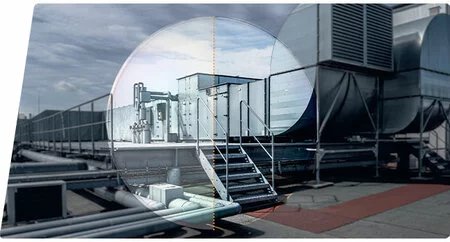
Downloads
Related Posts
Ultimate Optical and Torga Optical has been audited by uvex international and are officially permitted to manufacture EN approved prescription lenses under licence for the region
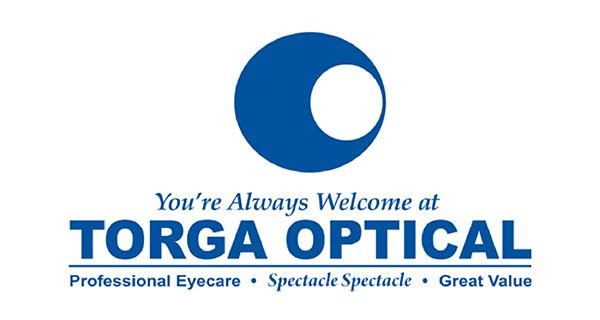
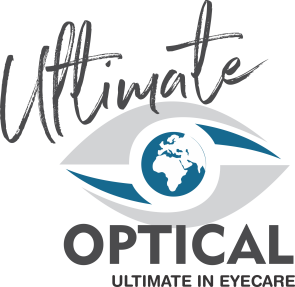
The Myths and misconceptions about prescription safety glasses
It is always important to separate the truth from fiction, especially when we are talking about vision. When you know how to take care of your eyes, you are taking a great step toward protecting your eyesight. When it comes to prescription safety eyewear, there are several myths that we want to dismiss.
It will not matter what type of side shield you will add to your prescription glasses, they cannot give you the protection you need when it comes to dealing with workplace safety hazards. In order for your prescription safety eyewear to be approved, your glasses will need to meet the standards that have been set aside by EN.
You need high-impact resistant protection, and your regular prescription glasses are not able to provide you with that sort of protection. If you try to wear your regular prescription glasses while working, you could be putting yourself in harm’s way of a serious eye injury.
Prescription safety glasses will not damage your vision. Unfortunately, many people have a problem with safety glasses for many reasons. One of the reasons for the headaches or the squinting could be because of an incorrect or outdated prescription. Before giving up on prescription safety eyewear and thinking you would be better off without them, you should consult with your optometrist to talk about your prescription.
The tint that we see on glasses was created to improve our visibility and increase comfort; it is not there to protect our eyes from the sun. Standard clear prescription safety spectacles from our certified partners have sufficient UV filters that will protect your eyes against the full spectrum of UV light.
Thankfully, we can find prescription safety glasses that are made with polycarbonate or trivex lenses. These lenses do an outstanding job of blocking sunlight, giving us the UV protection we need. Permanent tints are available for those working outdoors as well as transition lenses for those working indoors and outdoors.
Did you know that a large percentage of eye injuries do not just occur in the workplace? A large number of eye injuries occur at home. Many people feel they do not need to wear their prescription safety glasses when they are at home because they feel there will be no threats when they are just doing work around the house or in the yard. Just as many eye injuries can occur when you are in the comfort of your own place as they could when you are in the workplace.
Hazards are all around, and it does not matter where you are or how many precautions you take. Anything can happen at any given time. This is why it is so important to wear your prescription safety eyewear whenever you know there is a chance of you getting an eye injury. Even if you are not the one doing the hard work, if you are going to be around someone who is doing something in the yard or in the home, you should also wear safety eyewear.
This also applies to children who wear prescription eyewear. It is highly recommended that children who participate in certain sport activities like squash or field hockey wear prescription safety eyewear to avoid serious injury to their eyes.
